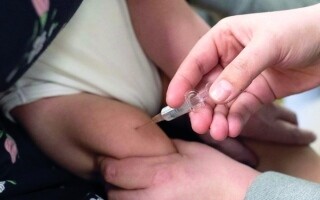
The center for the prevention of health threats in Germany warns about the dangers of the bulbul, infectious diseases caused by the bacteria 'Bordetella', transmitted through droplets during coughing and sneezing. The bacteria that causes the disease produces a toxin that destroys the ciliated epithelial cells of the respiratory system. Characteristic symptoms of bulbul: paroxysms of dry coughing, sneezing, runny nose, sore throat, vomiting, loss of appetite, problems with sleeping.
Bulbul more often affects children and infants, posing a threat to their lives; however, vaccination against bulbul provides effective protection for children. In the case of a child being infected with bulbul, antibiotics are administered, and it is recommended to stay home, avoid daycare or school, as the disease is highly contagious.
The Permanent Vaccination Committee in Germany recommends that women during pregnancy be vaccinated against bulbul in the last three months of pregnancy, and in case of high-risk pregnancies, a booster shot should be given in the second trimester to protect the newborn. Bulbul can also infect adults, so they need to update their vaccinations to avoid serious complications, such as pneumonia, asthma, respiratory distress, and weight loss.















